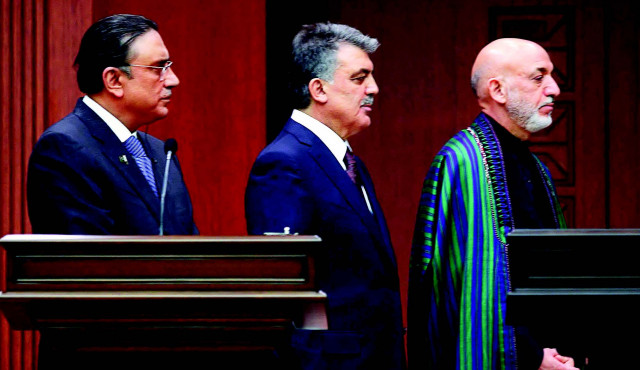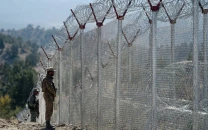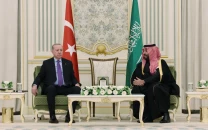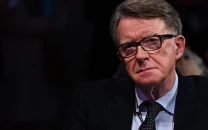Ankara summit: ‘Trilateral trade council’ launched
Joint working group to address assassination attempt on Afghan spymaster.

Ankara summit: ‘Trilateral trade council’ launched
According to a trilateral Memorandum of Understanding (MoU) signed by the three nations, the ‘trilateral trade council’ will work for the promotion of foreign investment, enhancing and diversifying commercial ties and exploring possibilities for cooperation in service sectors of the three countries.
The council will be convened annually, or whenever the three nations deem it necessary, alternately in Turkey, Afghanistan and Pakistan.
Under the framework, the three governments have agreed to provide necessary facilities to their businessmen to increase trade and to resolve any issues that may emerge in this regard.
The MoU has been initially signed for a period of one year, and will be renewed automatically for successive periods of one year as per the consent of the three countries.
Foreign Minister Hina Rabbani Khar, Afghan Foreign Minister Zalmai Rassoul and Turkish Minister for Communications Binali Yildirim signed the MoU on behalf of their governments, while the presidents witnessed the signing at the Cankaya Presidential Palace, Ankara.

According to a joint statement issued after the 7th trilateral summit among President Abdullah Gul and his Pakistani and Afghan counterparts Asif Ali Zardari and Hamid Karzai, the three countries reiterated their determination to intensify cooperation in Afghan-led and Afghan owned peace and reconciliation efforts and address the security challenges affecting the region.
Reiterating the crucial importance of regional cooperation for addressing regional challenges, they expressed their resolve to foster connectivity among the institutions of the three countries.
The summit also called for connectivity among the three countries, at the level of their people, institutions, infrastructures and economies.
Recognising the common challenge posed by terrorism, extremism and narcotics trafficking as a major threat to regional peace, security and stability, the statement, denounced the recent terrorist attacks on Afghan spymaster Asadullah Khalid and on Malala Yusufzai and wished them a speedy recovery.
In this regard a joint working group comprising relevant agencies of Afghanistan and Pakistan will address the recent attack on the Afghan spy chief.
The three sides welcomed the progress achieved in the Istanbul process for a secure and stable Afghanistan and reiterated their strong commitment to the process as a regional political dialogue platform and the development of confidence building measures within its framework, and looking forward to the success of the Baku and Astana meetings next year.
Mindful of the importance of the efforts of the High Peace Council of Afghanistan in bringing peace to Afghanistan and thus also contributing to regional stability; it also welcomed the recent visit of its Chairman Salahuddin Rabbani to Pakistan and took note of important initiatives taken by Pakistan in support of the peace. The summit noted the need for further developing the transport connectivity among the three countries as a basis for increased economic cooperation.
Welcoming the Regional Conference on Countering Narcotics held in Islamabad on November 12, 2012 as an important regional initiative, the statement said narcotics and extremism were a common threat to the region.
Regarding the already existing trilateral military cooperation which was discussed among the highest level military officials prior to the summit, it emphasised that the ongoing joint military training programmes and exercises which provide invaluable opportunities to share experience and foster connectivity among the armed forces of the three countries, as well as improving their inter operability, should be continued and expanded.
Pakistan, Turkey agree to bolster relations
President Zardari also held separate meetings with Turkey’s president and prime minister to discuss economic and regional issues.
Zardari stressed the need for the early finalisation of the Pakistan-Turkey Preferential Trade Agreement, which, he said, would help boost trade ties and achieve the trade target of $2 billion.
He also expressed hope that the ‘Gül Train’ project would revolutionise cargo and transit facilities between Pakistan and Turkey.
Published in The Express Tribune, December 13th, 2012.



















COMMENTS
Comments are moderated and generally will be posted if they are on-topic and not abusive.
For more information, please see our Comments FAQ